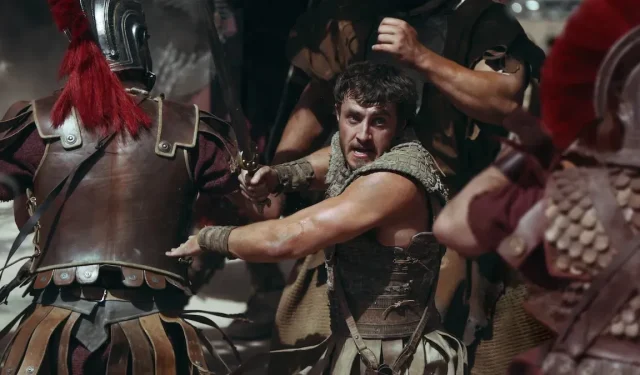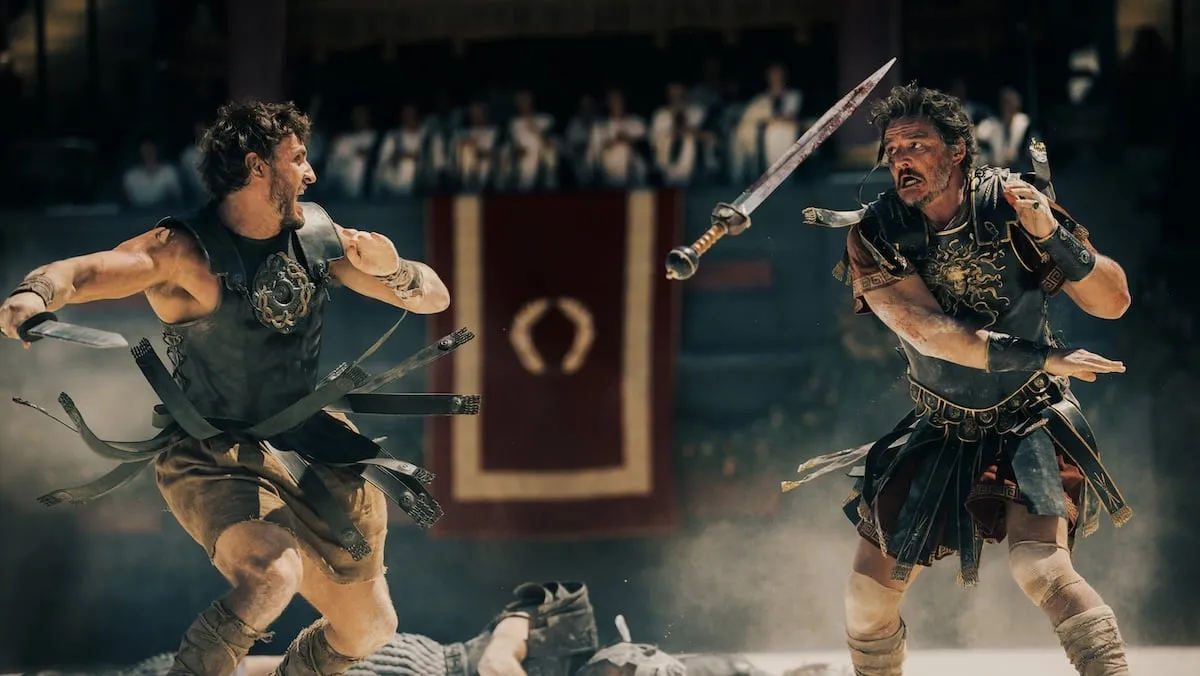
Gladiator II: A Nostalgic Return to Epic Storytelling
Ridley Scott, an iconic filmmaker whose work has shaped cinematic history, continues to impress with his latest venture, Gladiator II. Although it doesn’t reach the legendary status of its predecessor, this installment offers a compelling blend of nostalgia and fresh storytelling that echoes the grandeur of the original.
Rediscovering the World of Gladiator
The narrative centers around Lucius, portrayed by Paul Mescal, who is now concealed from danger following the downfall of Commodus (played by Joaquin Phoenix) and his father, Maximus (portrayed by Russell Crowe). Lucius’s journey is deeply entwined with themes of revenge as he sets his sights on avenging the past.
His primary target is Marcus Acacius, brilliantly acted by Pedro Pascal, and to achieve this goal, Lucius collaborates with the formidable Macrinus (played by Denzel Washington). The political turmoil posed by the erratic reigns of Emperor Caracalla (played by Fred Hechinger) and Emperor Geta (portrayed by Joseph Quinn) adds a layer of complexity to Lucius’s plans, keeping the audience engaged with an ever-evolving storyline.
An Epic Visual Experience
Scott’s signature style and visual storytelling are front and center in Gladiator II. The film effectively transports viewers back to the majestic world established in the first movie. Notably, Scott masterfully brings ancient battles to life, including fascinating sea battles that are enhanced by whimsical elements, such as using sharks, which have historically been a subject of debate among historians regarding their presence in the gladiatorial games.
Emotional Depth and Strong Performances
Fans expecting the emotional weight characteristic of the original will find solace in Mescal’s gripping portrayal of Lucius. However, the film truly shines thanks to its remarkable supporting cast. Pascal’s role as Marcus offers Lucius the motivation he needs, while Lucilla, portrayed by Connie Nielsen, serves as the emotional anchor that reconnects Lucius to his heart amidst the chaos and revenge-seeking antics.
Revenge: A Central Theme

The theme of revenge pervades the film as each character navigates their own vendettas. In a manner reminiscent of the original Gladiator, we witness how straightforward intentions, such as Lucius’s overt declaration of his goals, orchestrate complex interactions with the rest of the cast.
Macrinus, played artfully by Washington, manipulates those around him to further his ambitions, while Pascal’s nuanced performance adds depth to his battle sequences with Lucius, creating a contrast that enhances their dramatic encounters.
Scott’s Mastery of Cinematic Storytelling
While the runtime of over 150 minutes may at times feel extensive, the immersive nature of the battles distracts from the clock, drawing audiences deeper into the heart of chaos and glory. Many viewers may find themselves captivated, particularly by Hechinger and Quinn’s chaotic embodiment of dual emperors.
Ultimately, Gladiator II stands as a testament to Ridley Scott’s filmmaking prowess, delivering exhilarating battle sequences that reaffirm his reputation as a master director. For those concerned about whether this sequel lives up to its legendary predecessor, rest assured—it embodies the excitement and high stakes that made the original a classic.




Leave a Reply